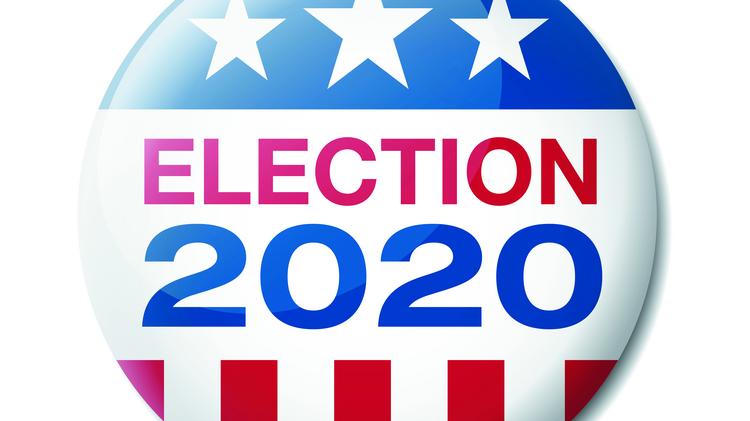Eighteen county auditors in Iowa told The Iowa Standard they will be sending out absentee ballot request forms to voters ahead of the 2020 General Election.
In total, there are 436,817 registered Democrats in those counties and 332,566 registered Republicans.
Democrats have a 104,251-voter advantage in those 18 counties combined.
Twelve of the 18 county auditors who said they will send out absentee ballot request forms are Democrats. Six are Republicans.
Much of that advantage comes from Polk, Johnson, Linn and Black Hawk counties, where Democrats hold five-digit advantages over the GOP.
Sioux County provides Republicans with its biggest advantage. The Northwest Iowa conservative hotspot boasts a 13,635-voter margin for Republicans.
Here is a complete list of the 18 counties that will be sending out absentee ballot request forms:
Black Hawk – Black Hawk County sent out absentee ballot request forms to all active registered voters first for the March 24 special election in Cedar Falls, which ended up being rescheduled to July 7.
“The reason was to protect as much as possible the health of voters and precinct workers during the pandemic,” said Black Hawk County Auditor Grant Veeder. “Many voters took advantage of this option, as they did in the June 2 primary election when the Secretary of State sent ABRs to all active registered voters in the state.”
Veeder said there is “little to suggest” the pandemic will have abated by the fall to where voting at the polls won’t potentially expose voters to the Coronavirus.
“We expect that this will deter many people from voting in person,” he said. “We wish to encourage people to vote, and providing them with ABRs has proven to be an effective way of accomplishing this.”
In addition, Veeder said political parties and candidates will “no doubt” provide ABRs to voters, but those mailings will focus on particular groups.
“Ours will go to everyone regardless of party, including no-party voters,” he said. “Plus, when we do our own mailing, we can send the ABRs on our schedule, giving us more control over our workload.
Clinton – Clinton County Auditor Eric Van Lancker said sending out the ABRs was a difficult decision, but one made with a lot of thought and discussion.
“We considered everything from health and safety to cost to speculation of how many poll workers do we actually think we’ll get to work our polling sites to the conditions of the polling locations themselves to handle social distancing,” Van Lancker said.
One of the considerations was how well the process worked for the June primary election.
“Not only in the aspect that it took a lot of pressure off our polling locations so we could decrease the number of polling locations, but also the turnout was record breaking,” he said.
In Clinton County, they reduced the number of polling locations from 26 to five.
“We were lucky to staff those five locations and our board that counts the absentee ballots. We had many veteran poll workers opt out of working the primary election for very legitimate concerns for their health,” he said.
Which was another concern. Staffing those polling locations may be difficult in November.
“I believe we need more staff to work poling locations,” he said of the pandemic. “We need more staff because we want to make sure the conditions are safe for our poll workers and our voters. To accomplish that, we like to appoint what we now call a ‘germ czar’ or two at each polling location. Those people are responsible for making sure social distancing is taking place and then to also disinfect voting booths after a voter has used it.”
Van Lancker is hoping that enough voters vote by absentee that he doesn’t have to worry about staffing concerns.
Even if staffing works out, there’s concern about polling locations being able to handle a typical turnout considering the pandemic.
“Social distancing with those traditional numbers is going to be difficult to manage,” he said. “And we expect this election to be near or more than record turnout. Therefore, again, we hope that absentee voting will take some of that pressure off the polling locations.”
Some locations have already been identified as being too small. There are hopes to “relocate” them.
“With that said, we don’t plan on reducing the number of polling locations as drastically as we did for the primary election,” Van Lancker said. “Unless we can’t get people to work the polls. Our hope right now is that we can open 22 polling locations as opposed to our traditional 26. And I’ll be honest, that’s our goal, but it is with huge amounts of hope that we are able to staff that many locations.”
The discussion started a couple of weeks ago in the office, and Van Lancker said they noticed a “decent amount” of voters starting to call and email requesting absentee ballot request forms.
“This was happening sooner and more frequent than we would normally anticipate,” he said. “So that was also an indication that our voters are interested in voting by mail for the general election.”
Van Lancker said he is “pretty fiscally conservative,” so cost was a factor.
“However, we ran a simulated budget for this plan. It was a very conservative budget. We were able to fit it into our existing budget, barely,” he said. “But, we are hopeful it will work if not thrown too many curveballs.
“Weighing the cost with the safety of our voters and our poll workers, I decided the value was there. Along with that financial discussion is the hope that we will be able to recover some funds for this election through FEMA or other resources. Like we did for the primary election, we will track all expenses that we recognize are above our traditional election process due to the pandemic. This ABR mailing would be considered one of those expenses.”
Ultimately, Van Lancker said voters should know these are not “knee-jerk” decisions.
“The factors I described for you were discussed with staff and others during several days,” he said. “It’s the kind of thing we think about before we go to sleep at night and it’s the kind of thing that we wake up in the middle of the night thinking about. I hope all of this is a temporary solution to a temporary issue. I pray we all stay safe and healthy this year and that we are able to conduct traditional elections again soon.”
Dubuque – Will be sending out a county-wide mailer to every registered household. The mailer will contain two absentee request forms and will let voters know how to contact the office to receive more forms if necessary.
Johnson
Linn – Will send absentee request forms to all active, registered voters. (Approximately 145,000 voters)
Marshall – Planning on sending them out due to safety concerns with COVID-19. If COVID-19 situation changes, the plan will be reevaluated.
Polk
Scott
Story
Webster – Webster County Auditor Doreen Pliner is working on it. She said she has to get the supervisors to agree to let her amend the budget, however.
Crawford
Fayette
Greene
Harrison
Page
Pottawattamie – Hoping to keep workers and voters safe by “allowing them the ease of mind to vote safe at home,” said Pottawattamie County Auditor Kristi Everett.
Sioux – Sioux County Auditor Ryan Dokter said it is “very hard” to predict how many people his office can recruit to work the election.
“In the primary, we were able to sufficiently staff the five locations we had open,” he said. “For the general, we plan to have all 10 locations open and would like to have around 110-120 people working this election. By doing this mailing, the hope is that people will take advantage of voting by mail, which may alleviate the need of having to recruit as many people to work polling locations.”
Dokter said the mailing from Secretary of State Paul Pate was a “tremendous help” during the primary.
“Voting by mail is safe, secure and allows voters time to vote the ballot in the comfort of their home,” he said.
In the past, he said his office has received a large amount of requests on the first day to mail ballots out. With his office having control of the timing of when those request forms go out, he can better manage the request load coming back in, prior to being able to mail the absentee ballots out.
“I have not done a countywide mailing like this in the past,” he said. “But we did not have a pandemic in previous elections either,” he said. “I believe this is a necessary action to take.”
Woodbury











